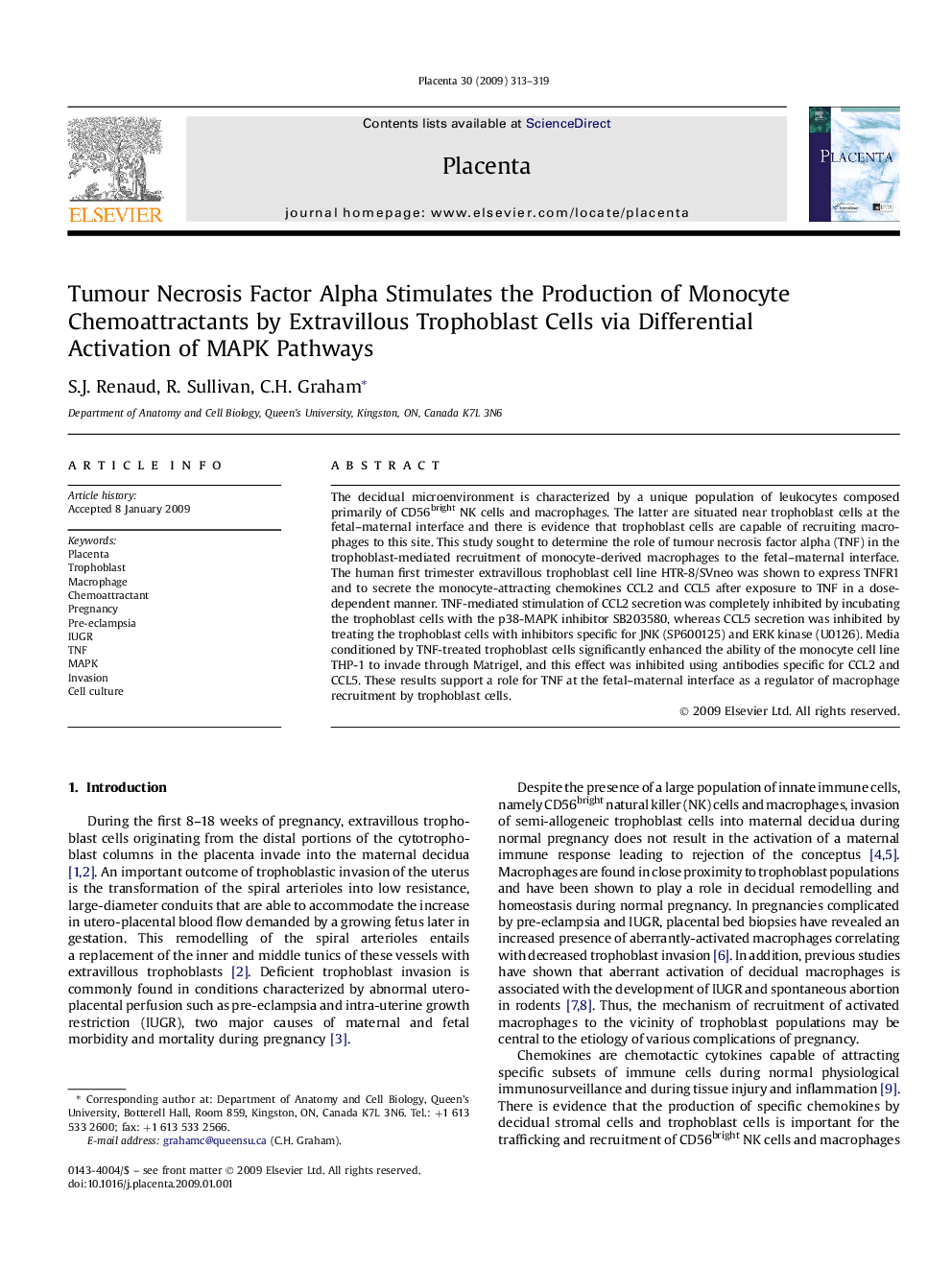| Article ID | Journal | Published Year | Pages | File Type |
|---|---|---|---|---|
| 5896030 | Placenta | 2009 | 7 Pages |
Abstract
The decidual microenvironment is characterized by a unique population of leukocytes composed primarily of CD56bright NK cells and macrophages. The latter are situated near trophoblast cells at the fetal-maternal interface and there is evidence that trophoblast cells are capable of recruiting macrophages to this site. This study sought to determine the role of tumour necrosis factor alpha (TNF) in the trophoblast-mediated recruitment of monocyte-derived macrophages to the fetal-maternal interface. The human first trimester extravillous trophoblast cell line HTR-8/SVneo was shown to express TNFR1 and to secrete the monocyte-attracting chemokines CCL2 and CCL5 after exposure to TNF in a dose-dependent manner. TNF-mediated stimulation of CCL2 secretion was completely inhibited by incubating the trophoblast cells with the p38-MAPK inhibitor SB203580, whereas CCL5 secretion was inhibited by treating the trophoblast cells with inhibitors specific for JNK (SP600125) and ERK kinase (U0126). Media conditioned by TNF-treated trophoblast cells significantly enhanced the ability of the monocyte cell line THP-1 to invade through Matrigel, and this effect was inhibited using antibodies specific for CCL2 and CCL5. These results support a role for TNF at the fetal-maternal interface as a regulator of macrophage recruitment by trophoblast cells.
Keywords
Related Topics
Life Sciences
Biochemistry, Genetics and Molecular Biology
Developmental Biology
Authors
S.J. Renaud, R. Sullivan, C.H. Graham,
